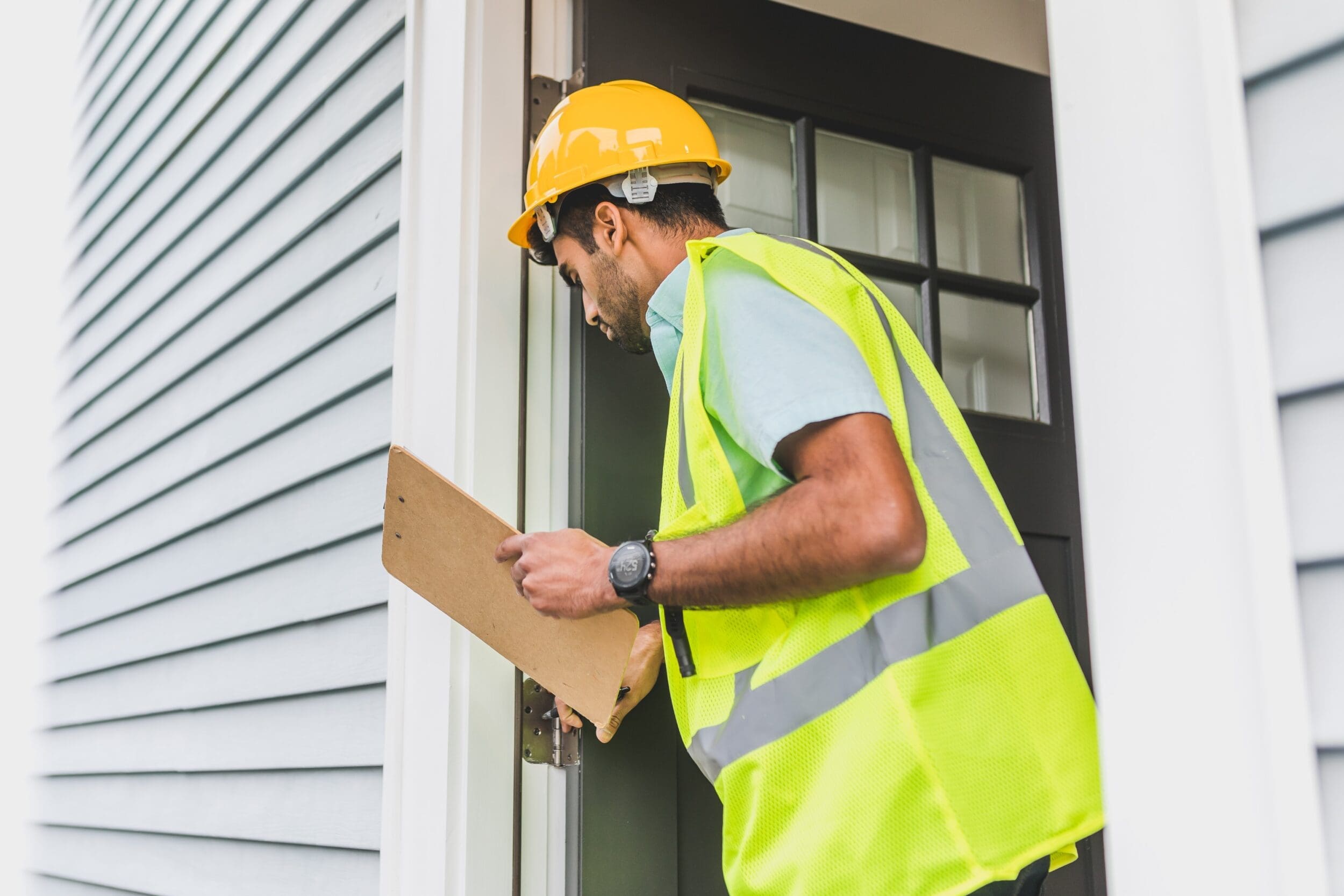Home inspections are an essential part of buying a home. Just as you wouldn’t buy an orange without gently squeezing it first, you shouldn’t buy a house without a home inspection. Real estate agents can be great at identifying potential issues in a house, but you’ll still want to seek unbiased outside advice.
The main reason why home inspections are essential is that unless you buy a brand-new home with a Tarion warranty, you always purchase a property in as-is condition. While the owner can’t hide or lie about anything, the onus of due diligence about the house’s condition rests with the buyer. If a deficiency is easily discoverable, a seller does not need to disclose it to a buyer. If an issue is covered up (for example, vermiculite in an attic with no access), then the seller does have to disclose this to the buyer *if they know about it.* If sellers don’t know about a deficiency, they are under no obligation to go looking for them.
Should You Rely on the Seller’s Home Inspection or Do Your Own?
In a perfect world, buyers should always do their home inspection. With this said, the Toronto market moves incredibly quickly, and, therefore, most sellers voluntarily have a home inspection done before listing their home and sharing it with prospective buyers. Even in today’s buyer’s market, buyers must be prepared to move quickly when the right house becomes available. In these cases, most buyers rely on the seller’s inspection.
There are a few instances when you should consider doing your own home inspection. If the seller has not done a home inspection and the home is older, consider a home inspection essential. In this situation, you should decide with your agent if it makes the most sense to do a home inspection before offering or to make an offer conditional on the home inspection. If you are not anticipating other buyers offering on the same property, it makes the most sense to make an offer conditional on the home inspection.
In the right market conditions, buying a home in West Toronto can be easier than you might think. Click here to read our recent blog post about taking advantage of the current market to land your first home.
How to Prepare For a Home Inspection
Home inspections take some time to get used to. Like going to a doctor, you should write out all your questions in advance, so you don’t forget them. You should always accompany a home inspector through the house because an in-person tour plus the written report is more valuable than simply reviewing the paper report. The questions you’ll want to ask will depend on your intentions with the house.
For example, if you plan on moving in immediately and not touching anything, you’ll want a comprehensive home inspection that outlines any potential issues, however minor. On the other hand, if you plan to do a significant renovation, you’ll primarily be concerned with high-cost items and may not be as concerned that the bathroom sink has a small crack.
Here are some questions to ask home inspectors:
-
Cost to repair a deficiency. Home inspectors note flaws regardless of the price to fix them. For example, they often comment on the length of downspouts. It costs about $100 (max) to extend a downspout, which should not be a dealbreaker for any home purchase. However, they may also note that a crawl space below an addition is not adequately supported and could cost you up to $100,000 to repair. Unless your plan involved digging out and re-doing the basement footings, this would be a deal breaker for most buyers.
-
Common versus uncommon problems: I’ve never read a home inspection that didn’t identify the grading around a house as a problem. You want your house to be on a small hill so that water runs away from your basement. Most houses instead sit in a tiny valley, and water runs towards their basements. Home inspectors will recommend improving the grading around your house so that water runs in the other direction. This is such a common problem that it should not be a deal breaker. You should ask your inspector how common the problem is to get a sense of whether or not you should let it be a deal breaker for you.
-
Major red flags: Home inspectors don’t often editorialize their findings. In other words, they’ll identify a problem and tell you when it should be repaired, but they don’t say, “wowzer, that’s bad.” So, if you want to know if, in their opinion, something is a big red flag, you need to ask them straight out.
-
“Would you buy this house?”: This is the most effective question you could ask a home inspector. Ask it at the very end of the inspection and watch their reaction. It sums up their whole opinion of your house with one facial expression. They’ll usually be forthcoming in answering.
Are you new to the world of real estate? Explore these helpful blog posts to learn how you can be prepared for your first home purchase and set yourself up for success on the market.
- Why It’s More Important Than Ever to Hire a Local Real Estate Agent
- How to Buy a House in West Toronto
- Are Roncesvalles Homes For Sale Holding Their Value?
- Stop Waiting For the Bottom of the Market
It is also essential to understand in advance what a home inspection DOES NOT cover:
-
Anything behind walls: Home inspectors will not move or alter anything in the house. They will not inspect anything to which they do not have access. Therefore, if anything is happening behind the drywall, you will likely not know about it. This could include mould from previous floods, remnants of old wiring, or pest infestations.
-
Air Quality: Home inspectors will not test the home’s air quality. These tests can take a long time and often need to be sent to labs for proper evaluation. Some issues that can pop up in air quality tests are airborne mould, radon, and off-gassing from UFFI.
-
Types of mould: Mold is quite common, especially in old Toronto homes. It should always be dealt with when you find it, but some mould is benign, and some aren’t. Home inspectors can tell you if there is mould present, but you’ll need to send a sample of it to a lab to determine its exact kind.
-
Water penetration: Unless there is water in a basement when the home inspector is there, it can be challenging to predict if a basement tends to leak. Home inspectors can tell you if they see evidence of past water damage, but that does not give you a good picture of the current situation.
-
Appliances: Most home inspectors do not test appliances.
Before spending money on a home inspection, you should also get up to speed on common house issues in the neighbourhoods you’re looking in. All Toronto neighbourhoods have unique house issues, and your real estate agent will be able to guide you on these.
For example, if you are hoping to buy an original Roncesvalles home (originally meaning built around 1910-1930 and not renovated), these are the most common issues you should expect
-
Knob and tube wiring: unless the wiring has been updated since the house was built, there will be knob and tube wiring
-
Plaster walls: Those plaster walls are about one hundred years old at this point and will likely be cracking and crumbling by now
-
Cast iron waste plumbing: After about one hundred years of use, these cast iron stacks often rust and will need to be replaced
-
Lead pipes: unless it has been upgraded by the city and the homeowner, the water supply into the house is likely via a lead pipe.
-
Wet basements: The old foundation of these homes is usually limestone, which is porous. Although not always an urgent concern, you will want to consider waterproofing and installing a sump pump in the basement to prevent future water penetration.
If any of these issues feel like a deal breaker, you should look for renovated or newer homes in Roncesvalles. If you’re buying a home outside of Roncy, ask your agent for the specific issues to look out for.
Looking for more information about life in Roncesvalles? Check out these blog posts to learn more about one of our favourite West Toronto neighbourhoods.
- Our Favourite Patios in Roncesvalles
- 5 Reasons Why We Love Roncesvalles
- Roncesvalles Neighbourhood Guide
Even with the best home inspection, you will always find surprises when you purchase a house. Murphy’s law ensures that most significant issues happen in the first year after a home has transferred ownership. If you can, try to have a financial cushion for these surprises.
Whether you’re buying a home for the first time or are no stranger to the process, working with a dedicated professional is the best way to avoid pitfalls and find a home that fits your needs and budget. Get in touch with our team by calling 416-788-1823 or sending us an email at kim@kimkehoe.com.

